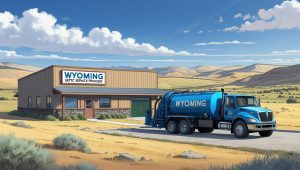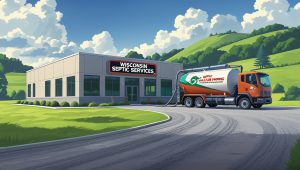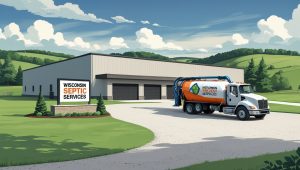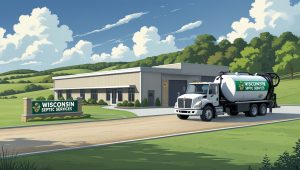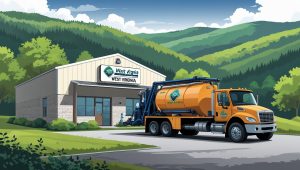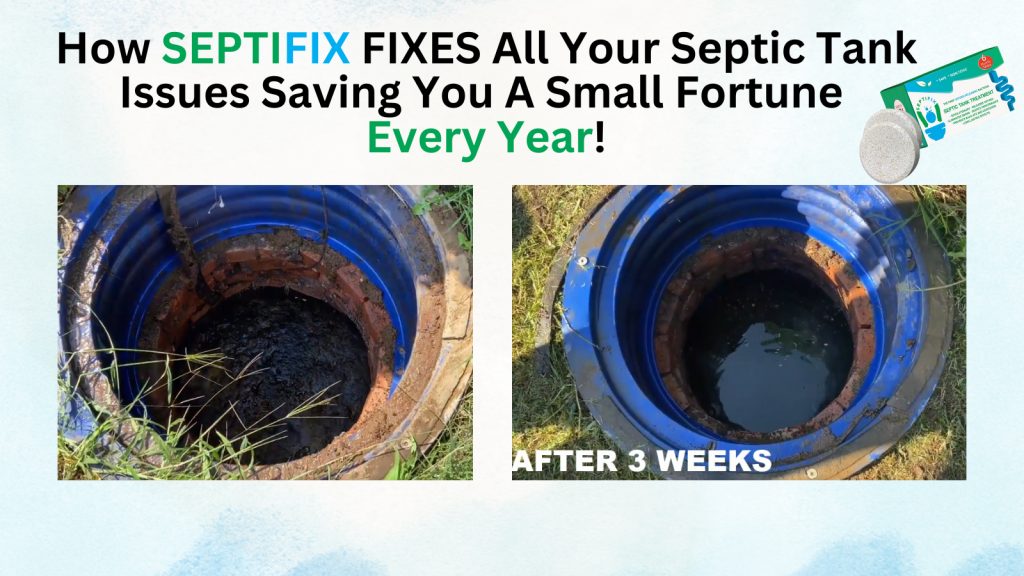The idea that septic tanks are only for rural areas is a widespread misconception. While it’s true that rural homes often rely on septic systems due to lack of municipal sewer lines, these systems are not exclusive to the countryside. In fact, many suburban and even urban properties successfully use septic systems for wastewater management. Understanding the broader applications of septic systems is essential for homeowners, real estate developers, and local planners alike.
Table of Contents
- Why People Think Septic Systems Are Just for Rural Living
- Where Septic Systems Are Found Today
- Modern Septic Systems Are More Versatile Than Ever
- Benefits of Septic Systems Outside of Rural Settings
- Common Scenarios Where Septic Is Preferred
- Regional Names and Local Uses
- Misconceptions That Could Cost You
- Safety and Maintenance Considerations
- Contact Info and Resources
- FAQS About Rural Septic Tanks
- Septifix
- Septic Permit Links by State
Why People Think Septic Systems Are Just for Rural Living
The Origins of the Myth
Historically, septic tanks became associated with rural or off-grid properties simply because these areas lacked centralized sewage systems. That connection stuck, even as septic technology advanced.
Municipal Sewer Bias
Most city dwellers take municipal sewer systems for granted. Because sewer access is typical in urban neighborhoods, there’s a built-in assumption that septic tanks are for those without access. However, not all urban areas are fully covered by municipal infrastructure—especially in expanding suburbs or older neighborhoods.
Where Septic Systems Are Found Today
Urban and Suburban Applications
You can find septic systems in suburbs, small towns, and even metro areas, particularly where extending sewer lines is cost-prohibitive or geographically difficult. Commercial properties, schools, and even apartment complexes sometimes use decentralized septic solutions.
Example: In parts of Florida, Texas, and California, you’ll find subdivisions with individual or shared septic systems due to soil and zoning constraints.
Remote Commercial Locations
Restaurants, gas stations, and mobile home parks in less populated zones often install septic tanks to handle wastewater needs without relying on centralized treatment.
Modern Septic Systems Are More Versatile Than Ever
Advances in Septic Technology
Today’s septic systems are no longer one-size-fits-all. Options like aerobic treatment units (ATUs), mound systems, and low-pressure dosing systems provide flexibility for a range of environments—including high-density neighborhoods.
Eco-Friendly Options
Many modern septic solutions are designed with sustainability in mind. Systems that recycle graywater or use biofilters support eco-conscious development—even in areas where sewer lines are an option.
Benefits of Septic Systems Outside of Rural Settings
Independence from Municipal Systems
One of the key advantages of having a septic system is control. You’re not subject to rising sewer fees or large-scale municipal backups. This makes septic systems appealing to private property owners and tiny home dwellers alike.
Lower Long-Term Costs
Septic systems can be more cost-effective over time, particularly when installed and maintained properly. Homeowners avoid monthly sewer bills and can often count on decades of reliable use.
Scalability
New construction in areas with limited sewer access often leans on scalable septic solutions that grow with development—especially in expanding suburbs.
Common Scenarios Where Septic Is Preferred
Infill Lots and Edge Developments
Urban infill development—building on underused land within existing communities—sometimes lacks sewer hookups. Septic tanks offer a practical alternative, especially when lots are far from main sewer lines.
Building in Underserved Communities
In developing areas or places with aging infrastructure, septic systems can bridge the gap until municipal upgrades occur. They’re often used temporarily—or even permanently—when cities can’t support growth quickly enough.
Remote or Self-Sufficient Living
From off-grid cabins to eco-villages, septic systems are a key piece of infrastructure for those choosing independent or minimalist lifestyles.
Regional Names and Local Uses
Depending on where you are, people refer to these systems as:
- On-site wastewater treatment systems (common in California and New York)
- Private sewage systems (Midwest states like Wisconsin and Illinois)
- Decentralized wastewater systems (technical term used in planning and engineering circles)
Recognizing these synonyms helps broaden the understanding of how septic systems are used across the U.S., not just in rural zones.
Misconceptions That Could Cost You
Home Buyers Missing Out
Some buyers may avoid homes with septic tanks due to misunderstanding their functionality or lifespan. In reality, properly maintained septic systems can last 30–40 years or longer.
Builders Limiting Design Options
Contractors may assume a development requires sewer access, limiting site plans unnecessarily. But with modern septic technology, there’s room to build even in disconnected areas—sometimes with fewer environmental disruptions.
Safety and Maintenance Considerations
Although septic systems are highly effective, they require regular pumping and inspections. Homeowners should:
- Pump tanks every 3–5 years
- Avoid flushing non-biodegradables
- Use septic-safe cleaners
- Know when to call a licensed professional
⚠️ Safety note: Never attempt to open a septic tank yourself. Toxic gases and risk of collapse make this a job for trained professionals.
Contact Info and Resources
If you’re considering a septic system—whether you’re in the city or country—here are some helpful tools and agencies:
- EPA SepticSmart Program
https://www.epa.gov/septic
Offers guides for homeowners and professionals on safe septic use. - National Onsite Wastewater Recycling Association (NOWRA)
https://www.nowra.org
A professional resource for industry standards, technology, and training. - Local Health Department
Most county health departments provide septic permits, soil test info, and maintenance guidelines. - Internal link idea: Signs Your Septic System Needs Pumping
Helps readers recognize early warning signs before damage occurs. - Internal link idea: How to Choose a Septic System Installer
A guide to vetting local pros.
Conclusion
The belief that septic tanks are only for rural areas is outdated and limiting. Septic systems are increasingly used in suburbs, small towns, and even cities—especially where sewer access is impractical or unavailable. With advances in technology and growing demand for decentralized solutions, these systems offer flexibility, independence, and long-term cost savings.
Thinking of installing a septic system? Whether you’re on a country road or a city block, it could be the right choice. Talk to a licensed septic professional and explore your options today.
FAQS About Rural Septic Tanks
Are septic systems suitable for urban and suburban areas?
Yes, septic systems can be appropriate for urban and suburban settings, especially in areas where municipal sewer connections are unavailable or impractical. They offer a self-contained solution for wastewater treatment, provided there’s adequate space and suitable soil conditions.
What are the benefits of using a septic system in non-rural areas?
Septic systems provide independence from municipal sewer systems, potentially lower utility costs, and environmentally friendly wastewater treatment. They can be tailored to specific property needs, making them versatile for various locations.
How often should a septic tank be inspected and pumped in urban settings?
Regular maintenance is crucial regardless of location. It’s recommended to inspect your septic system every 1 to 3 years and pump the tank every 3 to 5 years, depending on usage and tank size.
What factors determine the suitability of a septic system for a suburban property?
Key considerations include property size, soil type, local regulations, and the distance to existing sewer lines. A professional assessment can help determine if a septic system is appropriate for your property.
Are there environmental concerns with septic systems in densely populated areas?
While properly maintained septic systems are effective, in densely populated areas, there’s a risk of groundwater contamination if systems fail or are improperly managed. Regular maintenance and adherence to local health department guidelines are essential to mitigate these risks.
Septifix



